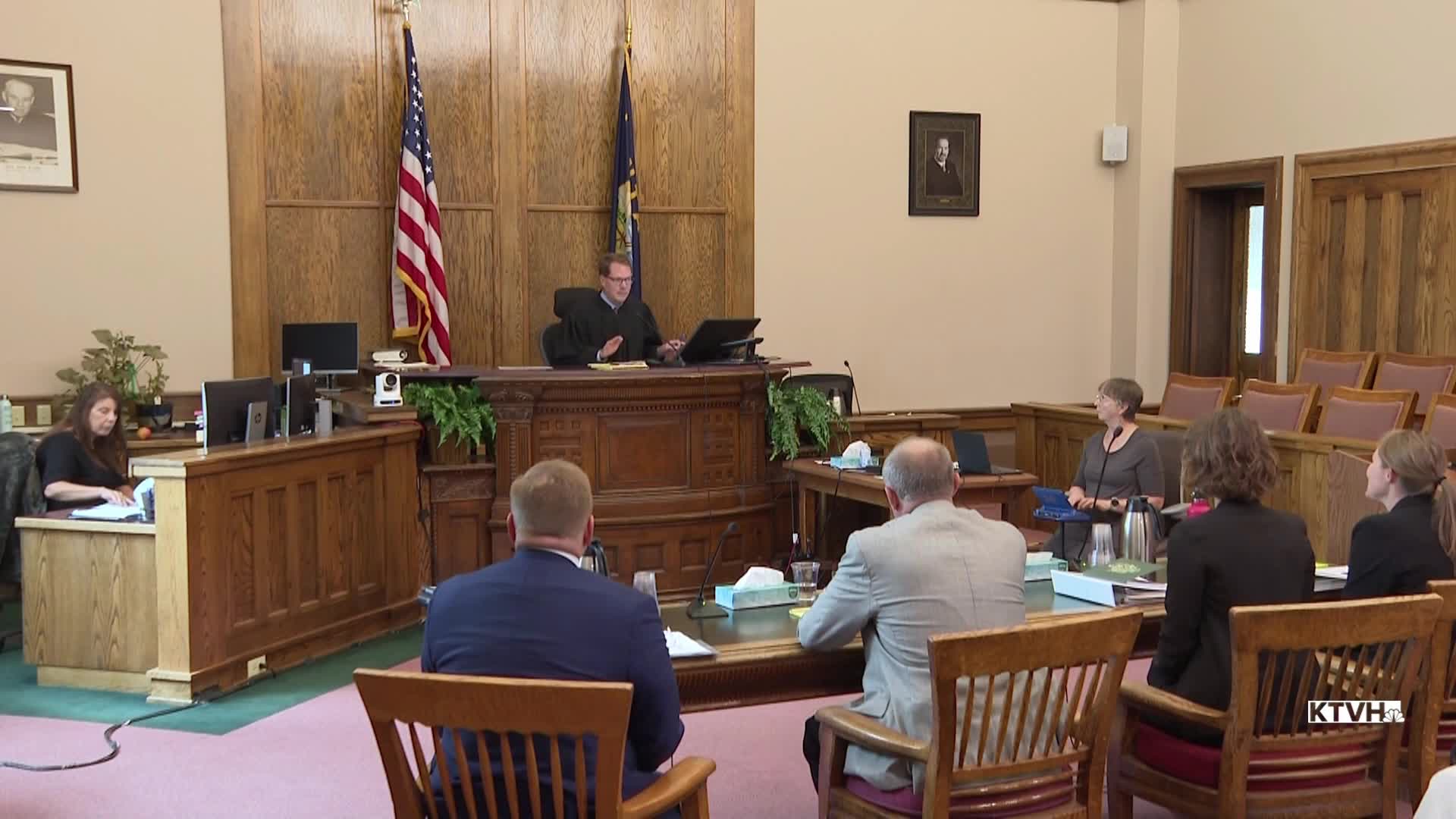HELENA — On Thursday, a state district judge in Helena heard arguments on whether a school choice program for students with disabilities violates the Montana Constitution.
In 2023, the Montana Legislature passed and Gov. Greg Gianforte signed House Bill 393. The law established education savings accounts for students with special needs. If an eligible student is not enrolled full-time in a public school, their family can apply to the state to get reimbursement for other educational expenses, including private school tuition, tutoring and educational therapies.
(Watch the video for more on the legal arguments around HB 393.)
Going into this school year, the Montana Office of Public Instruction reported more than 70 students in 21 counties were participating in the program.
“Each individual family and student can put it to the use that they need it the most for,” said Sen. Sue Vinton, R-Lockwood, who sponsored HB 393 while in the House. “I think that's the best part of what this legislation does.”
Vinton has a son with special needs. She says he wouldn’t have needed the options HB 393 provided, but her experience with him is part of the reason she concluded the legislation was needed.
“We were very, very fortunate to find a public school for his education that met his needs that we were ecstatic to be a part of,” she said. “But I also know many of his friends with special needs didn't have that same advantage that he had.”
The Montana Quality Education Coalition and Disability Rights Montana filed suit over HB 393, arguing that it violated the constitutional guarantee of educational equality for all students.
“I think we understand that we may want to make different choices about where we send our children to school,” said Rylee Sommers-Flanagan, an attorney representing the plaintiffs. “But at the end of the day, the thing that we ultimately ask for is that every single child has an opportunity to access high quality education. And so, if we choose to forgo that public system, we don't get to take money out of it with us.”
Under HB 393’s funding system, per-student funding goes from the school district where a participating student was previously enrolled to a savings account. A fiscal analysis during the 2023 legislative session estimated the accounts could receive around $7,000 a year.
Parents of an eligible student are required to sign a contract with the state and seek approval of their expenses before receiving any money.
The plaintiffs argue that HB 393 didn’t put enough guardrails to specify where the money would come from and how much could eventually be redirected.
“An increasing number of students may choose to opt into it, and the result will be a heavy burden on our schools,” said Sommers-Flanagan.
Plaintiffs say the Montana Constitution prohibits directing public funds for education to private individuals or entities “not under control of the state,” and that OPI’s approval process isn’t sufficient to guarantee expenses are properly vetted. They argue HB 393 infringes on school districts’ local authority to make decisions about education.
“We are devastating the ability of those local school boards to effectively serve our communities,” Sommers-Flanagan said.
Attorneys representing the state and Vinton defended the law Thursday. They said it’s appropriate for educational funding to be following students rather than school districts.
“How can it possibly hurt to offer parents an alternative?” asked Thomas Fisher, executive vice president and director of litigation for the national school choice organization EdChoice.
The defendants argued that the plaintiffs hadn’t shown evidence that the program would have significant negative impacts on school district budgets.
“I've not heard any of those concerns raised by individual school districts, so I think it's kind of a red herring,” Vinton told MTN. “I believe that this program is a beneficial for the students who need it without causing any harm to the many, many students who benefit from public education.”
The defendants also said the state did exercise control over the funding, pointing to the fact that OPI had identified a long list of expenses that aren’t eligible for reimbursement.
District Judge Mike Menahan didn’t make any immediate ruling after Tuesday’s hearing.
Vinton also sponsored House Bill 562, another school choice bill, during the 2023 legislative session. It established a system of “community choice” charter schools. However, the state has not been able to approve any such schools because of another lawsuit, which is still making its way through the courts.



